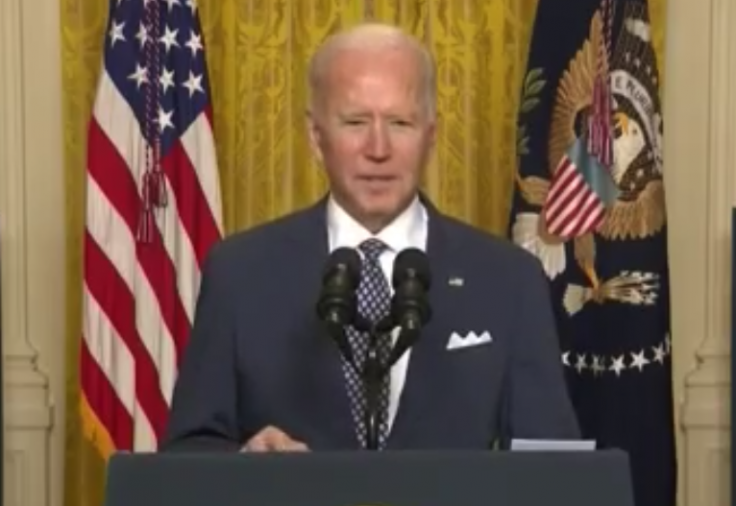The report from the Office of the Director of National Intelligence (ODNI) made public on Friday underpins a shift in Middle East Policy by Biden away from the historically very close ties with the kingdom but also shows the limits.
The report's release came a day after Biden had ordered airstrikes on militias in Syria that are backed by the Saudi's nemesis Iran, showing how difficult reworking policies in the region is.
A few days earlier, Biden had removed the sanctions imposed by former President Donald Trump on the Iran-backed Houthi rebels fighting the Saudi-supported government in Yemen.

Biden, who has tried to make human rights the centrepiece of his foreign policy, is facing the compulsions of realpolitik when it comes to dealing with influential middling countries like Saudi Arabia, leave alone powers like China or Russia.
Make the Kingdom Pay the Price
During a debate of candidates for the Democratic Party's presidential nomination, Biden attacked Saudi Arabia for Khashoggi's murder and said that he would make the kingdom pay the "price" and make it a "pariah".
But now in power, he finds he cannot go that far even as he recalibrates ties with it, while trapped between Riyadh and Teheran.
Salman himself escaped US retribution for the killing of Khashoggi, a permanent resident of the US and a columnist for the influential Washington Post, but instead the State and Treasury departments took separate actions against other Saudis.

This enables the Biden administration to continue working with Riyadh as he is the equivalent of a head of government and it cannot afford break with the regime.
Biden has gone only as far as refusing to talk to Salman citing protocol which places him lower than a president and insisting on talking only with King Salman bin Abdulaziz al Saud, even though he is not actively running the country.
Threatening Dissidents Overseas
Secretary of State Antony Blinken announced a policy of "Khashoggi Ban" against those acting on behalf of governments to attack activists abroad and in the first action he imposed visa restrictions on 76 Saudis.
He said that they were "believed to have been engaged in threatening dissidents overseas, including but not limited to the Khashoggi killing".
Treasury Secretary Janet Yellen announced sanctions on former Saudi intelligence chief Ahmad Hassan Mohammed al Asiri and the country's Rapid Intervention Force (RIF) freezing their assets in the US and barring anyone from doing business with them.
"The United States stands united with journalists and political dissidents in opposing threats of violence and intimidation," she said.
Democratic Party's leaders in Congress were not satisfied with these actions and called on Biden to go further.
Senate Foreign Relations Committee Chair Bob Menendez said he wanted the administration to "take concrete measures holding Crown Prince Mohammed bin Salman personally responsible for his role in this heinous crime".








